Comparing Decimals: A Step-by-Step Guide
Table of Contents
Introduction
Decimals
Decimals are a fundamental part of mathematics, and the ability to compare them accurately is crucial for making informed decisions and solving numerical problems. Let’s delve into the step-by-step process of comparing decimals to gain a deeper understanding of this essential skill.
Analogy of Definition
Comparing Decimals
Comparing decimals involves analyzing the value of each digit in relation to the decimal point. By following a systematic approach, one can determine which decimal is greater or lesser than the other.
Method
Step-by-Step Guide to Comparing Decimals
Step 1: Start by comparing the digits in the ones place.
Let’s compare 0.12 and 0.125
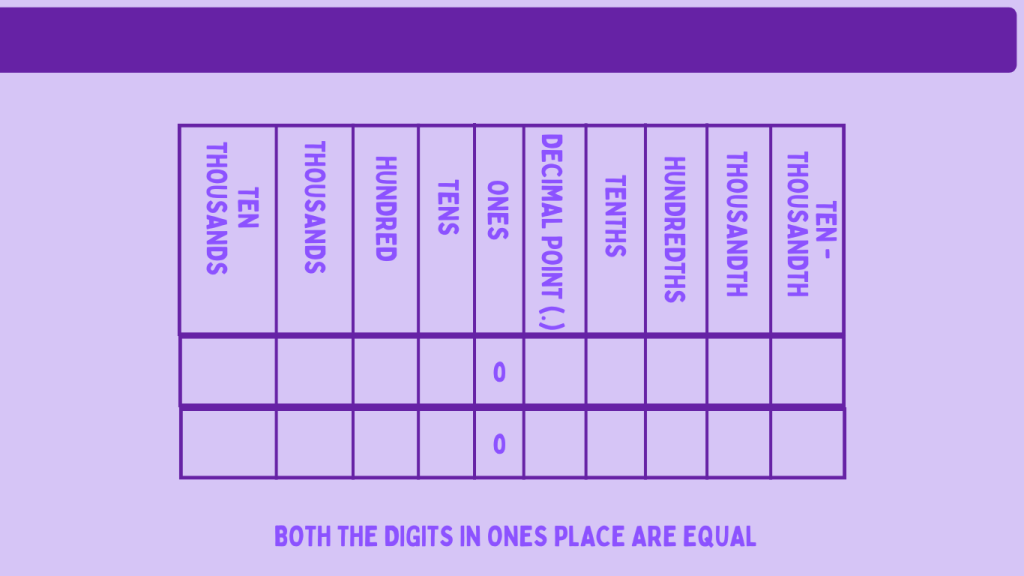
Step 2: If the ones place digits are equal, move on to the tenths place.
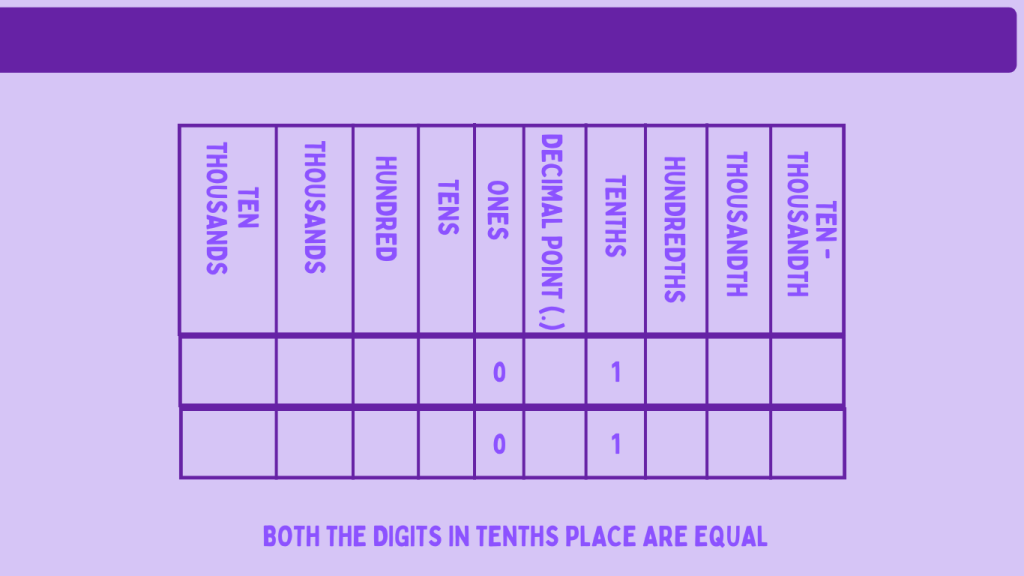
Step 3: Continue this process until a difference is found or all decimal places have been compared.
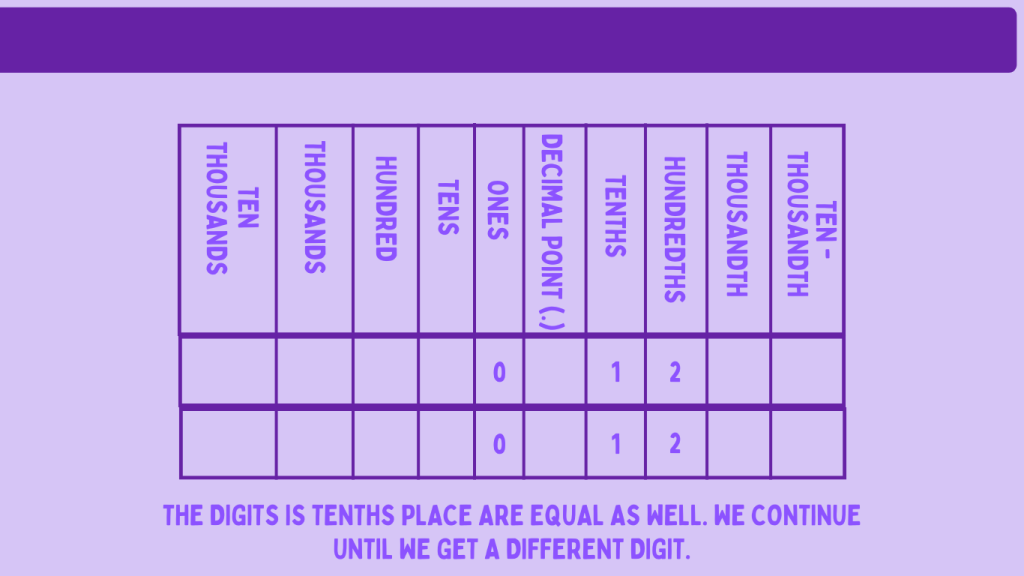
Step 4: When the digit at any place value of a number is greater than that of the other, we stop and name the number to be greater. As 0.12 doesn’t have 3 digits after decimal, we add a trailing zero to 0.12 to make it 0.120.
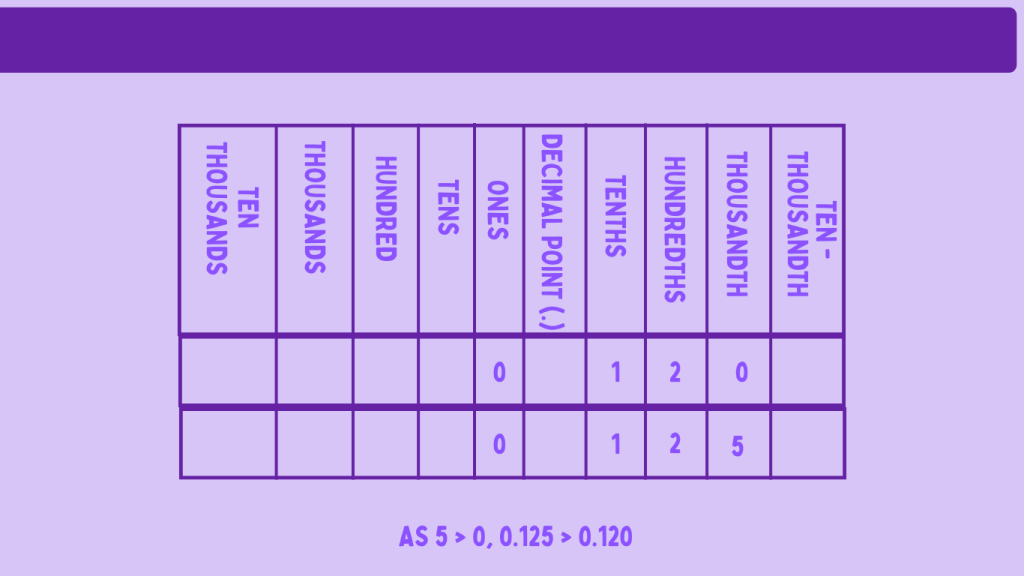
Comparing Decimal Using Number Lines
In a number line, digits towards the right are greater and those towards the left are smaller. To compare, we can simply draw a number line, and check where the numbers line to determine the greater one.
Comparing 0.12 and 0.16 on a number line
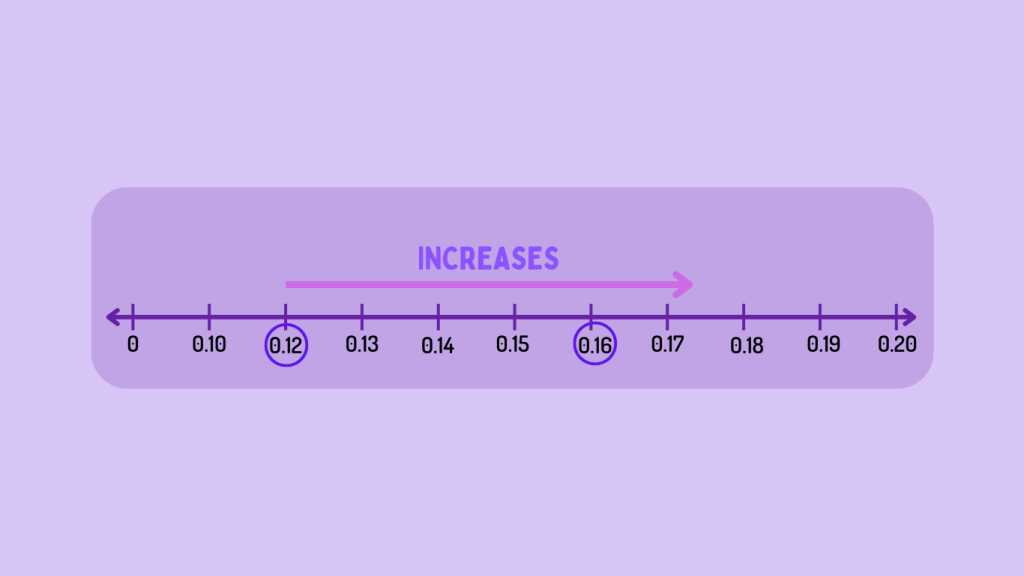
Examples
Example 1: Compare 0.75 and 0.8
Since the ones place digits are equal, move to the tenths place.
0.75 < 0.8
Therefore, 0.75 is less than 0.8.
Example 2: Compare 2.6 and 2.6
The ones place digits are equal, so move to the tenths place.
2.6 = 2.6
Therefore, 2.6 is equal to 2.6.
These examples illustrate the step-by-step process of comparing decimals. By comparing the digits in each decimal place, it becomes clear which decimal is greater, lesser, or equal to the other. This systematic approach ensures accurate comparisons and a deeper understanding of the relative values of decimals.
Quiz
Tips and Tricks
1. Align Decimal Points
Tip: When comparing decimals, align the decimal points to make it easier to identify the relationship between the numbers.
2. Add Trailing Zeros
Tip: If necessary, add trailing zeros to make the decimals have the same number of decimal places before comparing.
3. Use Greater Than or Less Than Symbols
Tip: Decimals can be compared using the greater than (>) or less than (<) symbols to indicate which decimal is larger or smaller.
4. Compare Deciamls and Fractions
Tip: We can compare decimals and fractions, by converting the fractions into decimals.
5. Master Place Values
Tip: Understand the place value and decimal place value chart, to compare decimal numbers.
Real life application
Scenario: Grocery Shopping
When comparing prices at the grocery store, it’s essential to accurately compare decimals to determine the best value for money.
Scenario: Baking a Cake
Measuring ingredients for recipes often involves comparing decimals to ensure the right proportions are used for a successful outcome.
Scenario: Map Navigation
Calculating distances on a map requires comparing decimals to determine the most efficient route to a destination.
FAQ's
Like? Share it with your friends
